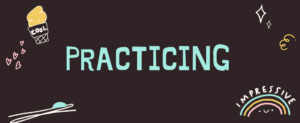Bem-vindo à aula sobre “Uses of Continuous Tenses”. Nesta lição, você aprenderá sobre os usos dos tempos contínuos em inglês, utilizando várias estruturas gramaticais e vocabulário apropriado. Vamos cobrir os usos mais comuns e como aplicá-los em diferentes contextos.
Usos dos Tempos Contínuos em Inglês
Os tempos contínuos são usados para descrever ações que estão em andamento. Aqui estão alguns dos principais usos:
- Present Continuous – para ações que estão acontecendo no momento da fala: She is reading a book. – Ela está lendo um livro.
- Past Continuous – para ações que estavam em andamento em um momento específico no passado: They were playing soccer at 3 PM yesterday. – Eles estavam jogando futebol às 15h de ontem.
- Future Continuous – para ações que estarão em andamento em um momento específico no futuro: We will be traveling to Spain next week. – Nós estaremos viajando para a Espanha na próxima semana.
- Present Perfect Continuous – para ações que começaram no passado e continuam no presente: He has been studying for two hours. – Ele está estudando há duas horas.
- Past Perfect Continuous – para ações que estavam em andamento antes de outra ação no passado: She had been working there for five years when she got promoted. – Ela estava trabalhando lá há cinco anos quando foi promovida.
Exemplos de Frases
- Present Continuous: She is cooking dinner now. – Ela está cozinhando o jantar agora.
- Past Continuous: I was watching TV when you called. – Eu estava assistindo TV quando você ligou.
- Future Continuous: They will be waiting for us at the airport. – Eles estarão nos esperando no aeroporto.
- Present Perfect Continuous: We have been living here since 2010. – Estamos morando aqui desde 2010.
- Past Perfect Continuous: She had been sleeping for hours before the alarm went off. – Ela estava dormindo há horas antes do alarme tocar.
Exercícios
Parte 1: Complete as Frases com o Tempo Contínuo Correto
- She ____ (read) a book now. (Present Continuous)
- They ____ (play) soccer at 3 PM yesterday. (Past Continuous)
- We ____ (travel) to Spain next week. (Future Continuous)
- He ____ (study) for two hours. (Present Perfect Continuous)
- She ____ (work) there for five years when she got promoted. (Past Perfect Continuous)
Parte 2: Traduza as Frases para o Inglês
- Ela está cozinhando o jantar agora. (She ____ dinner now.)
- Eu estava assistindo TV quando você ligou. (I ____ TV when you called.)
- Eles estarão nos esperando no aeroporto. (They ____ for us at the airport.)
- Estamos morando aqui desde 2010. (We ____ here since 2010.)
- Ela estava dormindo há horas antes do alarme tocar. (She ____ for hours before the alarm went off.)
Parte 3: Escolha a Forma Correta do Verbo no Tempo Contínuo
- She ____ (is reading/was reading) a book now. (is reading)
- They ____ (were playing/will be playing) soccer at 3 PM yesterday. (were playing)
- We ____ (will be traveling/have been traveling) to Spain next week. (will be traveling)
- He ____ (has been studying/had been studying) for two hours. (has been studying)
- She ____ (was working/had been working) there for five years when she got promoted. (had been working)
Parte 4: Conjugue os Verbos entre Parênteses no Tempo Contínuo Apropriado
- She ____ (cook) dinner now. (is cooking)
- They ____ (play) soccer at 3 PM yesterday. (were playing)
- We ____ (travel) to Spain next week. (will be traveling)
- He ____ (study) for two hours. (has been studying)
- She ____ (work) there for five years when she got promoted. (had been working)
Parte 5: Crie Frases usando os Tempos Contínuos Aprendidos
- (Ela está cozinhando o jantar agora.) (She is cooking dinner now.)
- (Eu estava assistindo TV quando você ligou.) (I was watching TV when you called.)
- (Eles estarão nos esperando no aeroporto.) (They will be waiting for us at the airport.)
- (Estamos morando aqui desde 2010.) (We have been living here since 2010.)
- (Ela estava dormindo há horas antes do alarme tocar.) (She had been sleeping for hours before the alarm went off.)
- (Eu estava estudando quando começou a chover.) (I was studying when it started to rain.)
- (Eles estarão trabalhando no projeto amanhã à tarde.) (They will be working on the project tomorrow afternoon.)
- (Nós temos praticado esportes regularmente.) (We have been practicing sports regularly.)
- (Ela tinha estado se exercitando antes de ir ao trabalho.) (She had been exercising before going to work.)
- (Eu estarei viajando durante o fim de semana.) (I will be traveling over the weekend.)
Respostas
Parte 1: Complete as Frases com o Tempo Contínuo Correto
- is reading
- were playing
- will be traveling
- has been studying
- had been working
Parte 2: Traduza as Frases para o Inglês
- is cooking
- was watching
- will be waiting
- have been living
- had been sleeping
Parte 3: Escolha a Forma Correta do Verbo no Tempo Contínuo
- is reading
- were playing
- will be traveling
- has been studying
- had been working
Parte 4: Conjugue os Verbos entre Parênteses no Tempo Contínuo Apropriado
- is cooking
- were playing
- will be traveling
- has been studying
- had been working
Parte 5: Crie Frases usando os Tempos Contínuos Aprendidos
- She is cooking dinner now.
- I was watching TV when you called.
- They will be waiting for us at the airport.
- We have been living here since 2010.
- She had been sleeping for hours before the alarm went off.
- I was studying when it started to rain.
- They will be working on the project tomorrow afternoon.
- We have been practicing sports regularly.
- She had been exercising before going to work.
- I will be traveling over the weekend.




